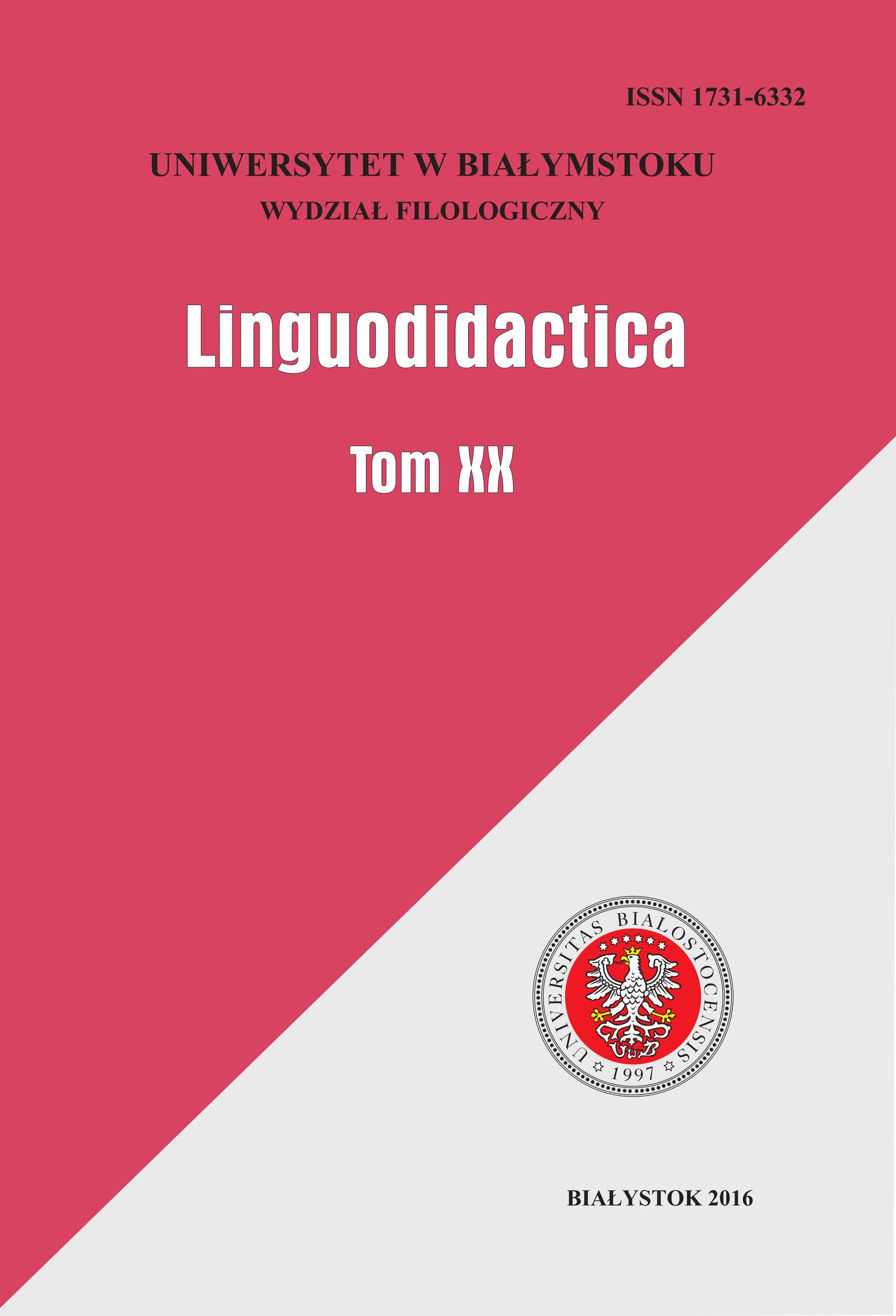Odniesienia kulturowe w nauczaniu języka obcego w grupie wielokulturowej – pułapki i wyzwania
Cultural references in teaching foreign language in a multicultural group – traps and challenges
Author(s): Maciej Paweł JaskotSubject(s): Social Sciences, Language and Literature Studies, Foreign languages learning
Published by: Wydawnictwo Uniwersytetu w Białymstoku
Keywords: multiculturalism; interculturalism; nonequivalence; linguoculturology; linguistic comparison
Summary/Abstract: The aim of the article is a more detailed analysis of the intense intercultural communication during foreign language classes. This type of communication is based both on the information contained in the mother tongue language system of each student as well on the cultural level, ie. when cultural patterns are translated. The ability to use a new language code are associated with socio-linguistic competence, without which one cannot really use a foreign language in order to produce correct messages and expressions in different socio-linguistic contexts. A clear awareness of own culture and cultural identity is the key to develop the theory of intercultural communication. A person communicating in a language other than his/her mother tongue, changes not only the linguistic system, but a whole framework for cultural references (as well as the personality), which confirms the need to understand another culture in order to achieve full communicative competence in a foreign language. In the article selected issues of interculturalism are reminded (and their implementation, eg. the lack of pragmatic equivalence) and practical examples of difficulties which may arise in the classroom while teaching in a multicultural group are given. Understanding the processes taking place in the classroom is possible with the help of the tools used in lincuoculturology and during linguistic comparison.
Journal: Linguodidactica
- Issue Year: 2016
- Issue No: 20
- Page Range: 133-149
- Page Count: 17
- Language: Polish

